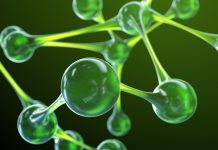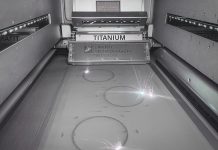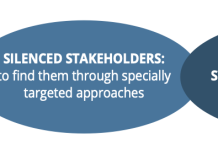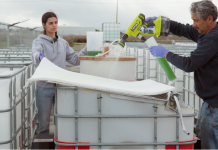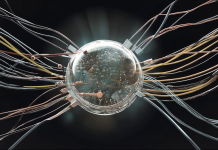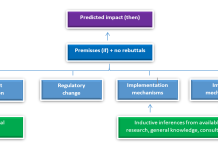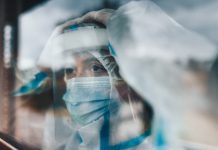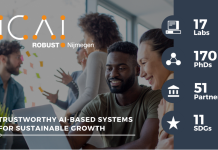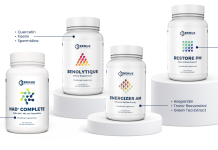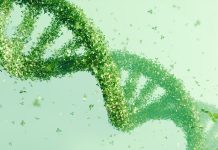Open Access Government produces compelling and informative news, publications, eBooks, and academic research articles for the public and private sector looking at health, diseases & conditions, workplace, research & innovation, digital transformation, government policy, environment, agriculture, energy, transport and more.
Home 2025
Archives
Laser light absorption on molten metal
Light absorption at high temperatures is highly impacted by interband absorption in addition to intraband absorption.
How did the first stars form in space?
Ralf Klessen, professor of theoretical astrophysics at Heidelberg University, investigates the physical processes that governed the formation of the first generation of stars in the early Universe.
Advancing materials science: Translating innovative research to commercial prospects
Aarthi Janakiraman, Research Director of the Advanced SciTech Division at Everest Group, focuses on advancing materials science and translating innovative research into commercial opportunities.
Driving innovation in additive manufacturing: Enhancing efficiency and certification
Ana Queirós Barbosa(1) and Christina Moeslund Zeuthen(2), explore driving innovation in additive manufacturing, explaining precisely how DILAPRO enhances efficiency and certification.
Physics: Quarks and Gluons explained
Professor Claudia Ratti from the Physics Department at the University of Houston explains the essential information about quarks and gluons, including the so-called Quark-Gluon Plasma, plus Quantum Chromodynamics.
Silent stakeholders in regulatory policy
In this first of a four-part series, Kati Rantala from the Faculty of Social Sciences at the University of Helsinki examines silent stakeholders in regulatory policy – identifying who they are, explaining their significance, and exploring ways to enhance their involvement.
Model thinking for everyday life
Many people rely on quick internet searches for knowledge acquisition. In his book MODEL THINKING For Every Day Life, Richard C. Larson discusses how we can rethink our approach to problem-solving, leading to greater learning in the process.
Communicating science: The “significance” of statistics
Statistical significance and scientific importance are distinct, equally valuable aspects of communicating the significance of statistics in scientific research.
Carbon capture surface: CO2 removal technology
Beth McDaniel, JD, Partner President from Reactive Surfaces Ltd. LLP, introduces us to Carbon Capture Surfaces, a CO2 removal technology that checks all the boxes.
Liquid computing and cybernetics for robotics and computer science
Recent advancements show that liquid memories and liquid computing devices bring a transformative approach to robotics and computer science.
Regulatory impact assessment and policymaking research
Kati Rantala, Research Director at the Faculty of Social Sciences, analyses Regulatory Impact Assessment as a policymaking tool.
On the origin of consciousness
Dr Peter Verheyen from the Sola Society & Academy at Vienna University examines the origin of consciousness and various ways in which information serves as the fundamental building block of the universe.
Innovative ways of dealing with unforeseen events
Dorothy Sutherland Olsen and Lisa Scordato from the Nordic Institute for Studies of innovation, research and education, explore innovative ways of dealing with unforeseen events.
Karl Popper and Michael Polanyi: Two 20th century philosophers of science and their present-day...
Ute Deichmann, Director of the Jacques Loeb Centre for the History and Philosophy of Science at the Ben-Gurion University of the Negev, discusses two prominent 20th-century philosophers and their distinctive but equally significant approaches to science.
Electric-field nanobubbles: A step change in nanobubble engineering, and its “coming of age”
Niall J. English, from Chemical Engineering at University College Dublin, discusses how electric-field nanobubbles have displaced their mechanically-generated counterparts in performance and sustainability.
Advancing knowledge about criminal justice and mental health
Researchers with expertise in criminal law, philosophy, psychiatry and psychology are combining their knowledge to explore how mental disorders are approached within criminal law and contribute to better legal and forensic practices.
Trustworthy AI for semiconductor manufacturing
Marcel van Gerven, a Professor of Artificial Cognitive Systems at Radboud University, discusses how his team’s research on AI models, algorithms, and demonstrators could serve as a blueprint for the semiconductor manufacturing industry.
Impact of student funds and fellowships on climate change research and human well-being
Sophie Farmani, Assistant Professor, Arts, Communications and Social Sciences Department, at the University Canada West, charts the positive impact of student funds and fellowships on climate change research and human well-being in the Canadian context.
A century of NAD+ insights drives aging science and solutions innovations
Dr. Rebecca Crews from Renue By Science, LLC, outlines a century of NAD+ insights driving aging science and, innovative solutions and much more.
Research collaboration: Cross-disciplinary training in sustainable chemistry and chemical processes
Greg M. Swain, Professor of Chemistry in the Department of Chemistry at Michigan State University, is researching cross-disciplinary training in sustainable chemistry and chemical processes. Here, he emphasizes the importance of teamwork for effective research collaborations.


![How did the first stars form in space? Figure 1: Sketch of the evolution of the Universe over the last 13.77 billion years. It started with the Big Bang, followed by an extremely short period of rapid exponential expansion. The furthest we can see is the cosmic microwave background, when radiation decoupled from matter, approximately 380,000 years after the Big Bang. This is followed by the ‘dark ages,’ during which this radiation redshifted from the visible regime into infrared and sub-mm wavelengths. The occurrence of the first stars, about 400 million years after the Big Bang, ended this phase, spearheading the formation of galaxies as we see them today. [Credit: NASA/WMAP Science Team, public domain]](https://www.openaccessgovernment.org/wp-content/uploads/2025/05/Fig-1_1200-218x150.jpg)
